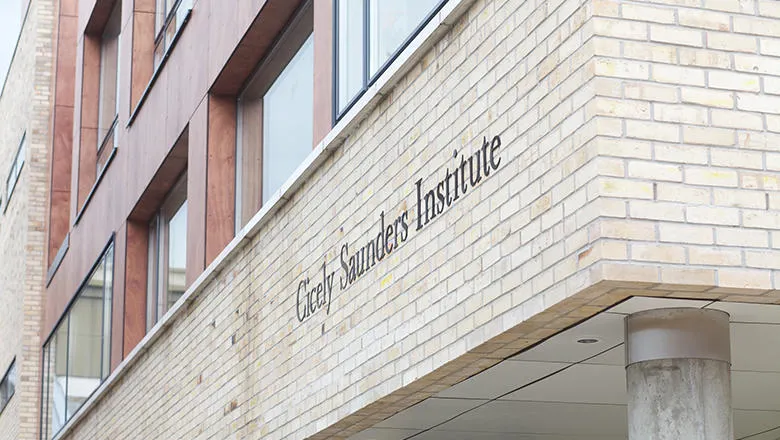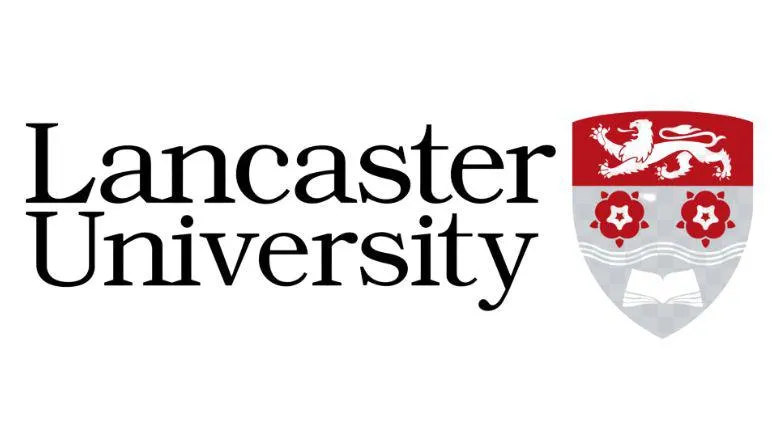Welcome to the NIHR Policy Research Unit in palliative and end of life care
The National Institute for Health and Care Research (NIHR) Policy Research Unit in palliative and end of life care exists to support policy makers to improve care, and reduce inequalities, for children and adults affected by life-limiting illnesses, and their families and carers, including into bereavement. The Director of the Policy Research Unit is Professor Katherine Sleeman, and the co-Director is Professor Fliss Murtagh (University of Hull).
The NIHR funds, enables, and delivers world-leading health and social care research that improves people’s health and wellbeing and promotes economic growth. This NIHR Policy Research Unit (PRU) is part of the NIHR and hosted by King’s College London in collaboration with the University of Hull, Lancaster University, the University of Leeds, and the University of Cambridge. Established in January 2024, the Policy Research Unit in palliative and end of life care is funded by the NIHR’s Policy Research Programme for three years.
The NIHR Policy Research Unit in palliative and end of life care (also known as PRU-PEOLC) delivers a core programme of policy research, as well as provides a Rapid Response facility for policymakers that delivers timely, high-quality evidence summaries to improve palliative and end of life care. The NIHR PRU-PEOLC also delivers findings directly to users of the research (including policymakers, practitioners, service users, and community groups) through outputs including briefings, reports, workshops, public events, and symposia. The three priority areas for research are: (1) Access and Equity; (2) Quality and Personalisation; (3) Sustainability.
The NIHR PRU-PEOLC has assembled a world-leading, expert team that includes researchers and public partners from five universities, with expertise in palliative and end of life care, public involvement, and a wide range of research methods vital to answer policy questions. The team have a strong track record of delivering impactful research, and have capacity and agility to respond to policy needs.
NIHR Policy Research Units are composed of experts and researchers who undertake policy research providing evidence to support national policy making in England through the Department of Health and Social Care (DHSC) and its Arm’s Length Bodies (ALB). The NIHR has awarded £100 million over five years to 20 PRUs across England that provide evidence to respond to new and emerging policy needs.
People
Director
- Professor Katherine Sleeman (King's College London)
Co-Director
- Professor Fliss Murtagh (University of Hull)
Co-applicants and collaborators
- Dr Sabrina Bajwah (King's College London)
- Dr Anna Bone (King's College London)
- Professor Stephen Barclay (University of Cambridge)
- Dr Judith Cohen (University of Hull)
- Professor Catherine Evans (King’s College London)
- Professor Lorna Fraser (King’s College London)
- Professor Irene Higginson (King’s College London)
- Sarah Greenley (University of Hull)
- Professor Miriam Johnson (University of Hull)
- Mr Rashmi Kumar (PPI representative)
- Dr Peter May (King’s College London)
- Dr Sarah Mitchell (University of Leeds)
- Dr Mark Pearson (University of Hull)
- Professor Nancy Preston (University of Lancaster)
- Dr Christina Ramsenthaler (University of Hull)
- Professor Catherine Walshe (University of Lancaster)
- Professor Lucy Ziegler (University of Leeds)
Researchers at King’s College London
Projects

Better provision for people from minoritised ethnic groups
A realist approach to understand what works, for whom and in what circumstances to create whole systems policy solutions for practice.

Cost effectiveness of palliative care
Evidence briefing on costs, cost savings, and cost-effectiveness of palliative and end-of-life care for adults.

Public awareness, knowledge, and trust in palliative and end-of-life care
Rapid research to examine the association between ethnicity and awareness, knowledge, and trust in palliative and end-of-life care.

Reduced emergency hospital admissions
Which primary care activities are associated with reduced emergency hospital admissions in the last months of life, and for whom are these most effective?

Skin changes at the end of life
The influence of skin colour on identification of deterioration in health among adults with advanced illness

Socio-economic position and pain at the end of life
Association between subjective financial situation and pain in the last week of life: findings from a mortality follow-back survey in England and Wales.

Sustainable care in the future
The roles and contributions of district and community nurses in palliative and end-of-life care for adults in home and community settings
News
King's hosts inaugural meeting for new NIHR Policy Research Unit
Members from five universities met at the Cicely Saunders Institute in January to celebrate the start of the NIHR Policy Research Unit in Palliative and End...

Events

Michal Galazka Study Day 2024. Palliative care for children and young people: policy and practice
This year’s Michal Galazka Study Day 2024 will be taking place on Wednesday 6th November 2024 13:00-16:30. The focus will be on children and young people.
Please note: this event has passed.
Public Involvement
What is Patient and Public Involvement?
Patient and Public involvement (PPI) is a central part of the NIHR Policy Research Unit in palliative and end of life care. PPI refers to research done with or by patients and the public, rather than to, about or for them. The Policy Research Unit in palliative and end of life care works as equal partners with public collaborators to inform our work. PPI will play a pivotal role in the success of the Policy Research Unit as engaging with the public, ensures that their perspectives, experiences, and preferences are considered, enhancing the overall quality. Involving public collaborators in decision-making processes helps to identify research priorities that align with real-world needs and concerns. This will foster a more patient-centered and inclusive approach to policy development.
Our PPI Strategic Advisory Group is chaired by Rashmi Kumar. The PPI Strategic Advisory Group provides the core PPI support for the Policy Research Unit. This group assists in the Unit's decision-making and overall PPI management, ensuring that meaningful PPI is embedded throughout the unit. Our PPI Strategic Advisory Group and wider PPI Community are made up of members from diverse backgrounds to ensure the full range of lived experiences, especially those less often heard, such as minoritised ethnic groups, older people, children, and those with socio-economic disadvantages.
A conversation between Fliss Murtagh (our Co-Director) and Rashmi Kumar (our PPI co-applicant) was held to discuss how patient and public involvement works in our Policy Research Unit and the potential benefits for policymakers. This video constitutes part of the contributions to a roundtable event hosted by the University of Technology Sydney IMPACCT- Improving Palliative, Aged and Chronic Care through Clinical Research and Translation, in collaboration with Palliative Care New South Wales in Australia in March 2025.
NB: ‘Consumer Involvement’ (a term used in Australia) is similar to ‘Patient and Public Involvement’ in UK - which was used in this conversation.
Our PPI Strategy
Our PPI Strategy outlines the guiding principles, approach and goals for patient and public involvement in our Policy Research Unit. It details our desired outcomes, how we will deliver these and how we will assess our impact and improve.
Read our PPI Strategy (2024-26) PDF.
How to get involved
To get involved you don’t require any medical experience or specialist knowledge, we are interested in your perspective and experiences as a patient, carer, or member of the public. All you need is an interest in palliative and end of life care, some free time, and a willingness to share your thoughts and experiences with us. We'd love to have you join us!
If you're interested in getting involved in research but don't know where to start, the NIHR's Why and How to Get Involved in Research guide is a helpful resource.
If you would like to be a part of our patient and public involvement panel, please contact us at PRU_PEOLC@kcl.ac.uk.
Reimbursements
As part of being involved in research, you will be compensated for your time and input. We will reimburse PPI travel expenses and pay an hourly fee recognising time and contribution. We also cover carer costs (including childcare) and reimburse home working/internet costs. Payment will be in accordance with NIHR Centre for Engagement and Dissemination guidance.
The NIHR has developed a useful guide to answer some frequently asked questions.
If you are involved in NIHR research and have concerns about how payments might affect your benefits, you can contact Benefits Advice Service directly on 01234 867944 and at contractsadmin@bedfordcab.org.uk. It is free, confidential and the advice is personalised using the latest regulations.
Resources
The Cicely Saunders Institute of palliative care, policy and rehabilitation runs a Public Involvement Forum, which contains useful resources for those wanting to get involved. This online forum was created to facilitate productive discussions between our research teams and members of the public, including patients and carers. The goal of these discussions is to enhance the quality, relevance, and impact of our work.
This forum also contains information on where you can find support for yourself or a loved one.
The NIHR has recently updated the Learning for Involvement website, which includes several useful resources for being involved in research.
If you are interested in learning about the UK standard of involvement, please visit the UK Standards for Public Involvement website.
Projects

Better provision for people from minoritised ethnic groups
A realist approach to understand what works, for whom and in what circumstances to create whole systems policy solutions for practice.

Cost effectiveness of palliative care
Evidence briefing on costs, cost savings, and cost-effectiveness of palliative and end-of-life care for adults.

Public awareness, knowledge, and trust in palliative and end-of-life care
Rapid research to examine the association between ethnicity and awareness, knowledge, and trust in palliative and end-of-life care.

Reduced emergency hospital admissions
Which primary care activities are associated with reduced emergency hospital admissions in the last months of life, and for whom are these most effective?

Skin changes at the end of life
The influence of skin colour on identification of deterioration in health among adults with advanced illness

Socio-economic position and pain at the end of life
Association between subjective financial situation and pain in the last week of life: findings from a mortality follow-back survey in England and Wales.

Sustainable care in the future
The roles and contributions of district and community nurses in palliative and end-of-life care for adults in home and community settings
News
King's hosts inaugural meeting for new NIHR Policy Research Unit
Members from five universities met at the Cicely Saunders Institute in January to celebrate the start of the NIHR Policy Research Unit in Palliative and End...

Events

Michal Galazka Study Day 2024. Palliative care for children and young people: policy and practice
This year’s Michal Galazka Study Day 2024 will be taking place on Wednesday 6th November 2024 13:00-16:30. The focus will be on children and young people.
Please note: this event has passed.
Public Involvement
What is Patient and Public Involvement?
Patient and Public involvement (PPI) is a central part of the NIHR Policy Research Unit in palliative and end of life care. PPI refers to research done with or by patients and the public, rather than to, about or for them. The Policy Research Unit in palliative and end of life care works as equal partners with public collaborators to inform our work. PPI will play a pivotal role in the success of the Policy Research Unit as engaging with the public, ensures that their perspectives, experiences, and preferences are considered, enhancing the overall quality. Involving public collaborators in decision-making processes helps to identify research priorities that align with real-world needs and concerns. This will foster a more patient-centered and inclusive approach to policy development.
Our PPI Strategic Advisory Group is chaired by Rashmi Kumar. The PPI Strategic Advisory Group provides the core PPI support for the Policy Research Unit. This group assists in the Unit's decision-making and overall PPI management, ensuring that meaningful PPI is embedded throughout the unit. Our PPI Strategic Advisory Group and wider PPI Community are made up of members from diverse backgrounds to ensure the full range of lived experiences, especially those less often heard, such as minoritised ethnic groups, older people, children, and those with socio-economic disadvantages.
A conversation between Fliss Murtagh (our Co-Director) and Rashmi Kumar (our PPI co-applicant) was held to discuss how patient and public involvement works in our Policy Research Unit and the potential benefits for policymakers. This video constitutes part of the contributions to a roundtable event hosted by the University of Technology Sydney IMPACCT- Improving Palliative, Aged and Chronic Care through Clinical Research and Translation, in collaboration with Palliative Care New South Wales in Australia in March 2025.
NB: ‘Consumer Involvement’ (a term used in Australia) is similar to ‘Patient and Public Involvement’ in UK - which was used in this conversation.
Our PPI Strategy
Our PPI Strategy outlines the guiding principles, approach and goals for patient and public involvement in our Policy Research Unit. It details our desired outcomes, how we will deliver these and how we will assess our impact and improve.
Read our PPI Strategy (2024-26) PDF.
How to get involved
To get involved you don’t require any medical experience or specialist knowledge, we are interested in your perspective and experiences as a patient, carer, or member of the public. All you need is an interest in palliative and end of life care, some free time, and a willingness to share your thoughts and experiences with us. We'd love to have you join us!
If you're interested in getting involved in research but don't know where to start, the NIHR's Why and How to Get Involved in Research guide is a helpful resource.
If you would like to be a part of our patient and public involvement panel, please contact us at PRU_PEOLC@kcl.ac.uk.
Reimbursements
As part of being involved in research, you will be compensated for your time and input. We will reimburse PPI travel expenses and pay an hourly fee recognising time and contribution. We also cover carer costs (including childcare) and reimburse home working/internet costs. Payment will be in accordance with NIHR Centre for Engagement and Dissemination guidance.
The NIHR has developed a useful guide to answer some frequently asked questions.
If you are involved in NIHR research and have concerns about how payments might affect your benefits, you can contact Benefits Advice Service directly on 01234 867944 and at contractsadmin@bedfordcab.org.uk. It is free, confidential and the advice is personalised using the latest regulations.
Resources
The Cicely Saunders Institute of palliative care, policy and rehabilitation runs a Public Involvement Forum, which contains useful resources for those wanting to get involved. This online forum was created to facilitate productive discussions between our research teams and members of the public, including patients and carers. The goal of these discussions is to enhance the quality, relevance, and impact of our work.
This forum also contains information on where you can find support for yourself or a loved one.
The NIHR has recently updated the Learning for Involvement website, which includes several useful resources for being involved in research.
If you are interested in learning about the UK standard of involvement, please visit the UK Standards for Public Involvement website.
Our Partners

University of Hull

Lancaster University
University of Leeds
University of Cambridge

Group leads
Contact us
For more information regarding our Policy Research Unit, please contact us using the email below.


